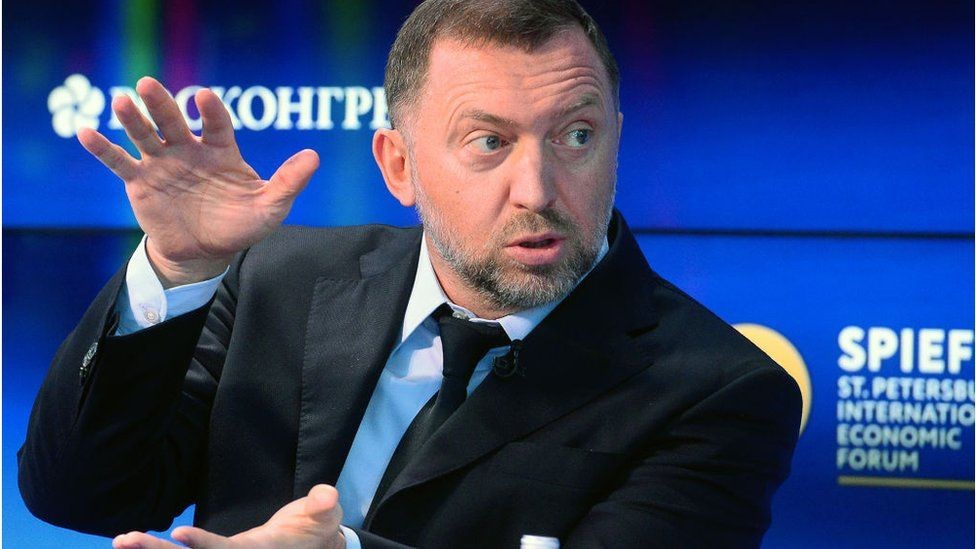您想继续阅读英文文章还
是切换到中文?
是切换到中文?

THINK ALUMINIUM THINK AL CIRCLE

According to Oleg Deripaska, a prominent Russian oligarch, Russia has managed to withstand Western sanctions imposed in response to its invasion of Ukraine. Despite expecting the country to struggle financially due to the war, Deripaska expressed surprise at Russia's resilience.

He attributed this to the nation's ability to forge new trade connections with the global south and increase investment in domestic production. These measures allowed Moscow to overcome the efforts to isolate its economy and continue to thrive.
The private sector turned out to be stronger than ever just some months back, the Russian oligarch claims in astonishment.
Deripaska exclaimed: "I was surprised that private business would be so flexible. I was more or less sure that up to 30 per cent of the economy would collapse, but it was way less."
"Yes, there is war spending and all this kind of subsidies and government support, but still, it's a surprisingly low slowdown. The private economy found its way to operate and to do so successfully," he added.
Despite being cut off from global markets and supply chains, Russia has shown apparent resilience, which has been a point of pride for President Vladimir Putin. He announced last week that "the recovery stage for the Russian economy is finished" after "we saw off unprecedented external pressure".
Although Russia was hit vehemently at the inception of the Russia-Ukraine war, it has since succeeded in deflecting G7 sanctions on the vast majority of its oil exports. The IMF forecasts that Russia's gross domestic product will grow by 1.5 per cent this year and 1.3 per cent in 2024. However, Mr Putin was more optimistic last week, predicting a 2.8 per cent spike this year, which is more than double the maximum predicted by his own cabinet in April.
Although he is one of the very few oligarchs to have offered criticism of the invasion in its early months, Mr Deripaska, the founder of leading aluminium producer Rusal and its parent energy company En+, has toned down his anti-war statements more recently amid growing pressure on oligarchs to pay more taxes and, in some instances, pledge their assets to the transcontinental giant at war.
Mr Deripaska, who presides over a fortune worth $US2.5 billion ($3.9 billion), as per the Russian edition of Forbes, asserted: "I always doubted this Wunderwaffe [wonder-weapon], as Germans used to say, of the sanctions – weaponising the financial system as a kind of tool to negotiate."
"We made so much effort to make the world global, in terms of trade, investment, information flows. It's really over when you can use sanctions; it's a kind of instrument of the 19th century. We can't see that it would be efficient in the 21st century," he added.
Ukraine has discarded notions such as the one Mr Deripaska made for "real negotiations" on the grounds that it would legitimise Russia's territorial gains. However, Mr Deripaska warned that more combat-like situations would mean "another 50,000 dead from both sides [and] maybe 150,000 wounded" by the eve of 2024.
"Do you really believe that it's wise to have another 200,000 people . . . who would suffer another 12 months?" he blurted out.
Trade with China has gone up 32% year-on-year in the first eight months of 2023 to $US155 billion, while trade with India tripled in the first half of the year to $US33 billion, according to state newswire RIA Novosti. Russia's wealth in natural resources makes it too attractive a trade partner for countries that depend on its energy, metals and food exports to abandon, Mr Deripaska said.
"Out of the next billion people who're about to be born, 70 per cent will be in this region. Let's face reality. They want development; they need Russian resources, Russian solutions, trade with Russia," narrated Mr Deripaska.
"Believing that the sanctions will stop [the war] or create regime change or somehow make us closer to the end of the conflict . . . No. We need to have another solution," he concluded.
To explain the resilience of the economy, Mr Deripaska pointed to Kremlin investment in industry and efforts to force inefficient state enterprises that dominate the economy to increase capacity, partly in support of the war effort. Mr Deripaska, who has been under personal sanctions by the US since 2018 and the EU since last year, said his travels to Asia had convinced him countries from the global south would resist pressure to join the Western sanctions, offering Russia a lifeline.
Responses








